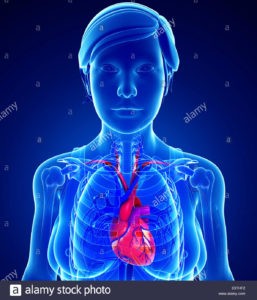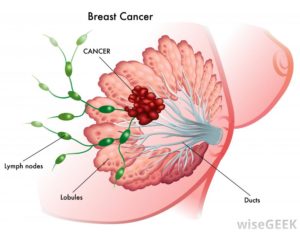
Diagnosed with Cancer? Your two greatest challenges are understanding cancer and understanding possible side effects from chemo and radiation. Knowledge is Power!
Learn about conventional, complementary, and integrative therapies.
Dealing with treatment side effects? Learn about evidence-based therapies to alleviate your symptoms.
Click the orange button to the right to learn more.
- You are here:
- Home »
- Blog »
- side effects ID and prevention »
- Alcohol Increase Breast Cancer Risk?
Alcohol Increase Breast Cancer Risk?

Consuming three to four alcoholic drinks or more per week after a breast cancer diagnosis may increase risk of breast cancer (BC) recurrence,
Drinking even moderate amounts of alcohol may raise the risk for breast cancer recurrence in some women, new research indicates. The association seems confined to former breast cancer patients who are postmenopausal or overweight or obese, the researchers noted.
However, drinking moderately (about three to four drinks per week) was not linked to increased risk for all-cause death, and may in fact lower the risk for dying from a non-breast cancer-related health issue, the study suggests.
In this study, nearly nine in 10 women drank wine, more than 40% consumed liquor, and almost 36% drank beer.
The observations are reported in the Aug. 30 online edition of the Journal of Clinical Oncology by a team led by Marilyn L. Kwan, a researcher at Kaiser Permanente in Oakland.
The findings are “consistent with what we already know about alcohol’s role in increasing the risk for developing primary breast cancer,” said Kwan.
“But I want to emphasize that women who consume less than three to four drinks per week didn’t see any increased risk in terms of recurrence or breast cancer death,” Kwan added. “And, in fact, we did see a suggestion that women who consume small amounts of alcohol get some protection against the risk of death due to cardiovascular disease.” But that finding was not statistically significant, she noted.
Between 2000 and 2002, Kwan and her colleagues recruited about 1,900 women in California and Utah, most of whom had been diagnosed about two or three years earlier with early-stage breast cancer.
To explore the potential relationship between drinking and breast cancer risk, the researchers asked the women to complete a dietary survey, indicating their routine consumption of wine, beer and/or liquor.
Just over half the women were considered drinkers. Nearly nine in 10 drank wine, more than 40% consumed liquor, and almost 36% drank beer.
Over nearly seven and a half years of follow-up, 293 women experienced breast cancer recurrence, and 273 died from a variety of health complications.
Kwan’s team found that study participants who were postmenopausal or overweight/obese raised their risk for breast cancer recurrence by nearly 1.5 times if they regularly consumed a minimum of three to four drinks of any type of alcohol a week.
Similarly, that group of women faced a 1.5 times greater risk of dying from breast cancer if they followed the same drinking patterns.
On the other hand, the research team unearthed indications that drinking any amount of alcohol may possibly decrease the risk of dying from causes other than breast cancer.
However, Kwan stressed that the findings will need to be confirmed by other studies.
Dr. Paula Klein a medical oncologist and breast cancer specialist at the Beth Israel Comprehensive Cancer Center in New York City, who was not involved in the research, described the observations as useful, as long as they are taken in context.
The researchers only looked at moderate drinking, not heavy drinking, and their finding is confined to women who are postmenopausal and those who are overweight or obese, she stressed. “But that’s a good thing, because information like this — where risks and benefits are confined to different subgroups — is part of the new push to personalize medicine,” she said. “Because one size doesn’t fit all in terms of risk factors and treatments.”
The study is important because it adds to a woman’s awareness of risk factors for the development and recurrence of breast cancer, she said. “And it’s another gentle reminder of the risks associated with being overweight and obese, and how small additional factors can influence outcomes,” she added.
When patients ask what they can do to lower their risk, this is a modifiable change, alongside weight loss and exercise, she said.
“For those patients who really want to enjoy their wine and are thin, you can assure them that a little bit of wine with dinner is not going to make a dramatic difference in their breast cancer risk. But for those who are overweight/obese, you can ask them to control their alcohol intake.”
Mary Miller- Breast Cancer Profile in Courage
Alcohol Consumption and Breast Cancer Recurrence and Survival Among Women With Early-Stage Breast Cancer: The Life After Cancer Epidemiology Study.
PURPOSE To examine the association of alcohol consumption after BC diagnosis with recurrence and mortality among early-stage breast cancer survivors.
PATIENTS AND METHODS Patients included 1,897 LACE study participants diagnosed with early-stage BC between 1997 and 2000 and recruited on average 2 years postdiagnosis, primarily from the Kaiser Permanente Northern California Cancer Registry. Alcohol consumption (ie, wine, beer, and liquor) was assessed at cohort entry using a food frequency questionnaire. Cox proportional hazards models were used to estimate hazard ratios (HR) and 95% CI with adjustment for known prognostic factors.
Results Two hundred ninety-three BC recurrences and 273 overall deaths were ascertained after an average follow-up of 7.4 years. Nine hundred fifty-eight women (51%) were considered drinkers (> 0.5 g/d of alcohol), and the majority drank wine (89%). Drinking >/= 6 g/d of alcohol compared with no drinking was associated with an increased risk of BC recurrence (HR, 1.35; 95% CI, 1.00 to 1.83) and death due to breast cancer (HR, 1.51; 95% CI, 1.00 to 2.29). The increased risk of recurrence appeared to be greater among postmenopausal (HR, 1.51; 95% CI, 1.05 to 2.19) and overweight and obese women (HR, 1.60; 95% CI, 1.08 to 2.38). Alcohol intake was not associated with all-cause death and possibly associated with decreased risk of non-breast cancer death.
CONCLUSION Consuming three to four alcoholic drinks or more per week after a breast cancer diagnosis may increase risk of BC recurrence, particularly among postmenopausal and overweight/obese women, yet the cardioprotective effects of alcohol on non-breast cancer death were suggested.



